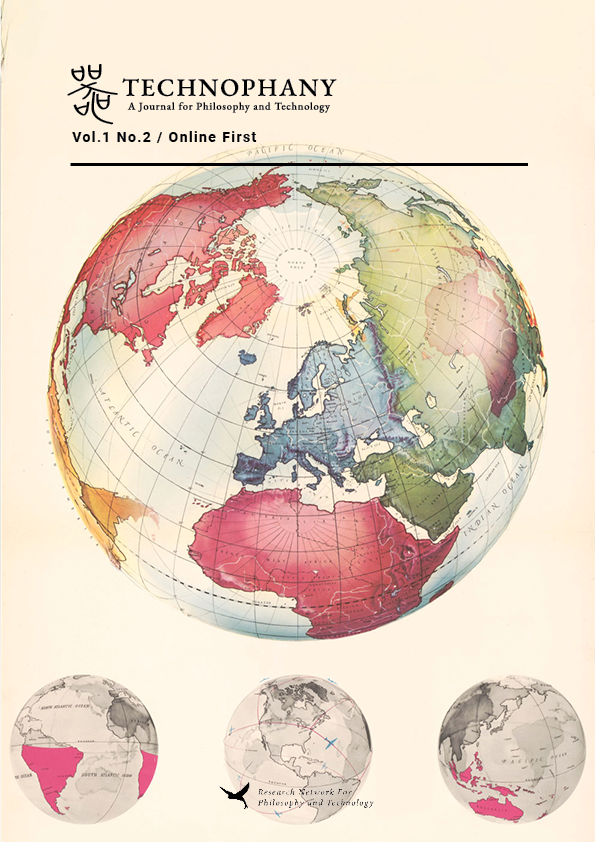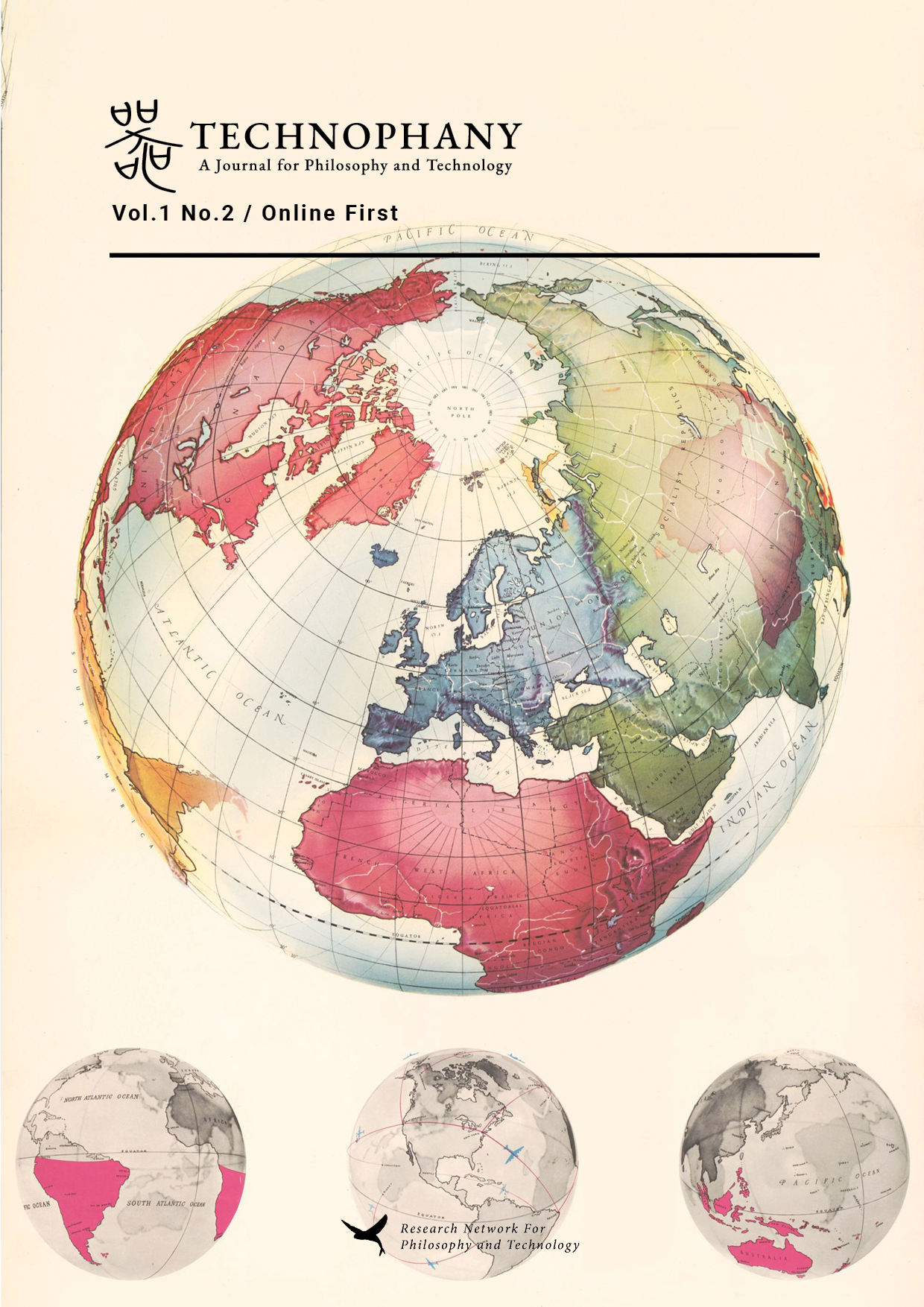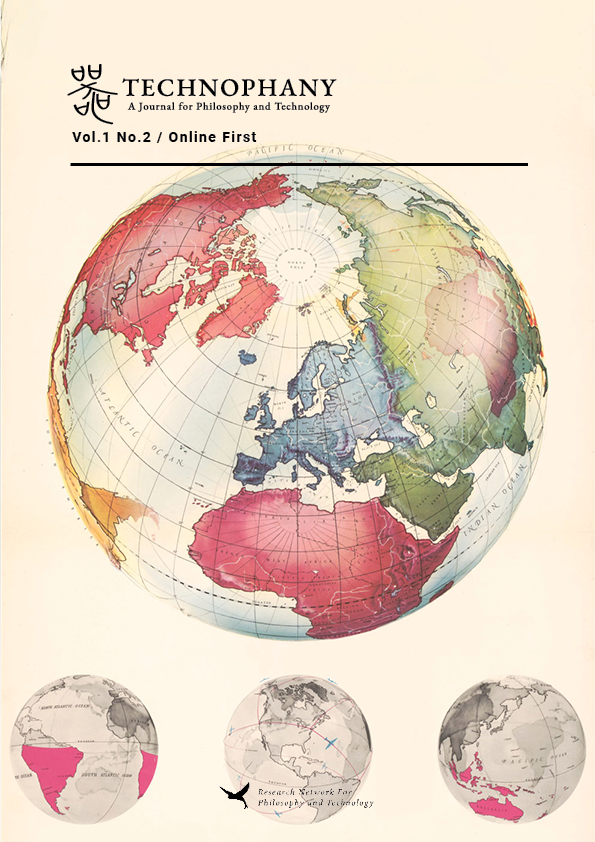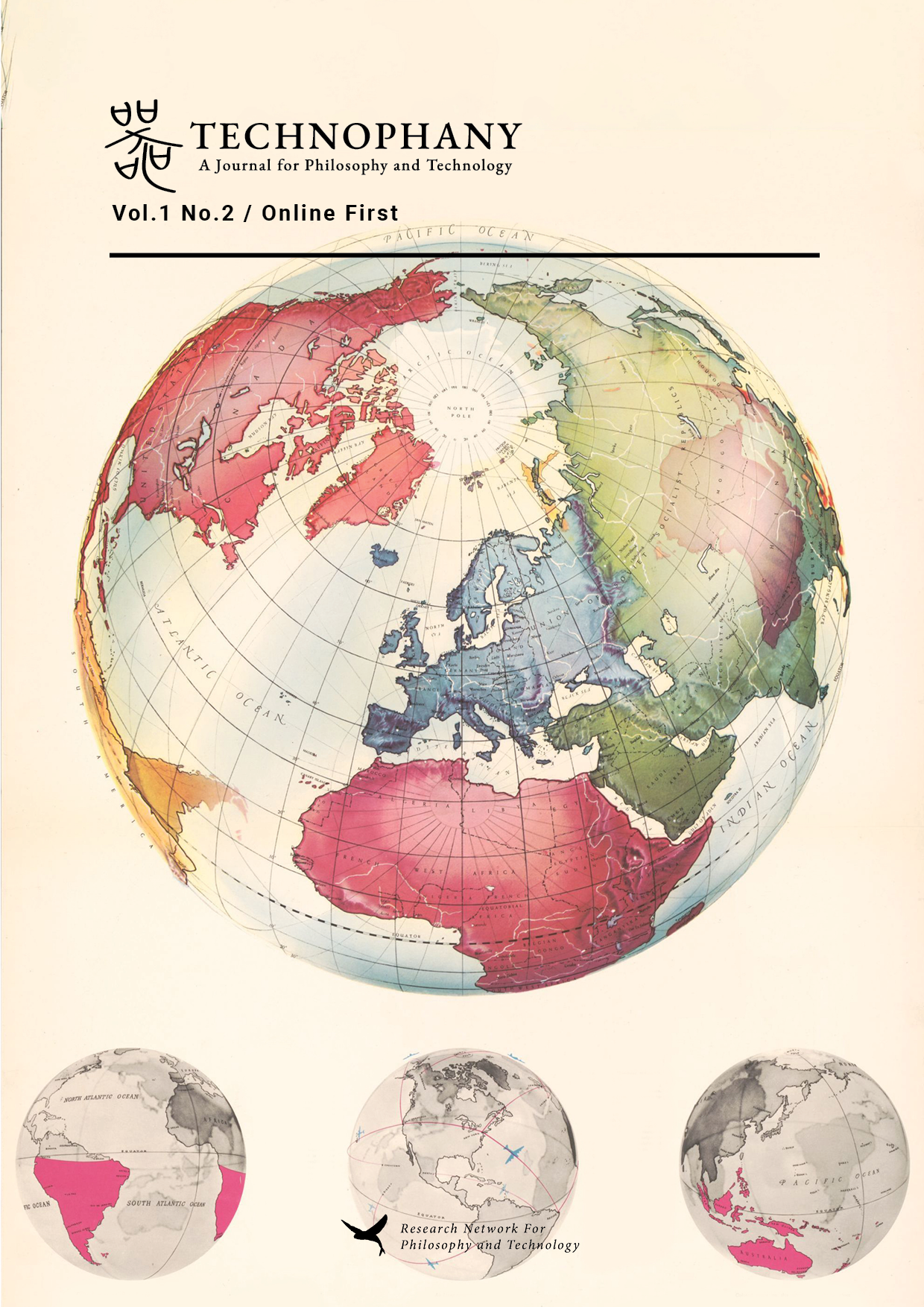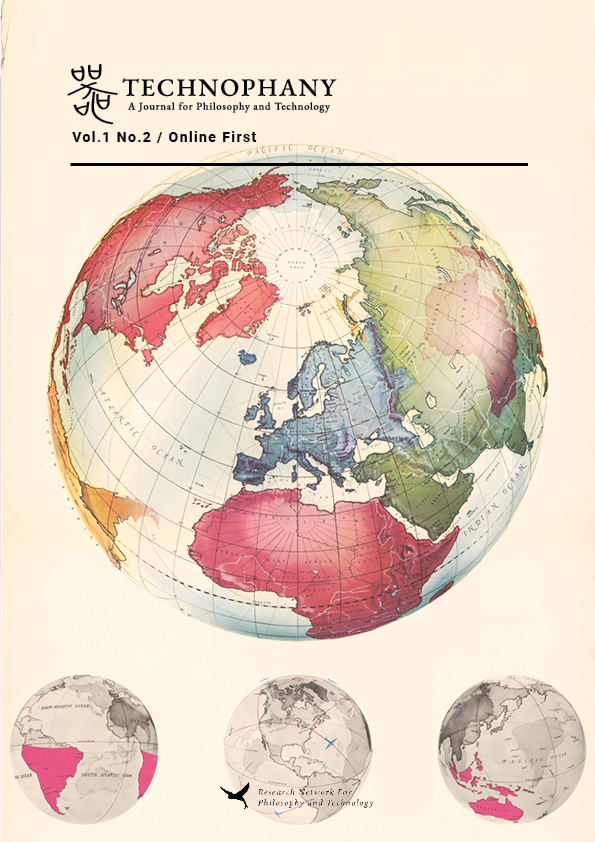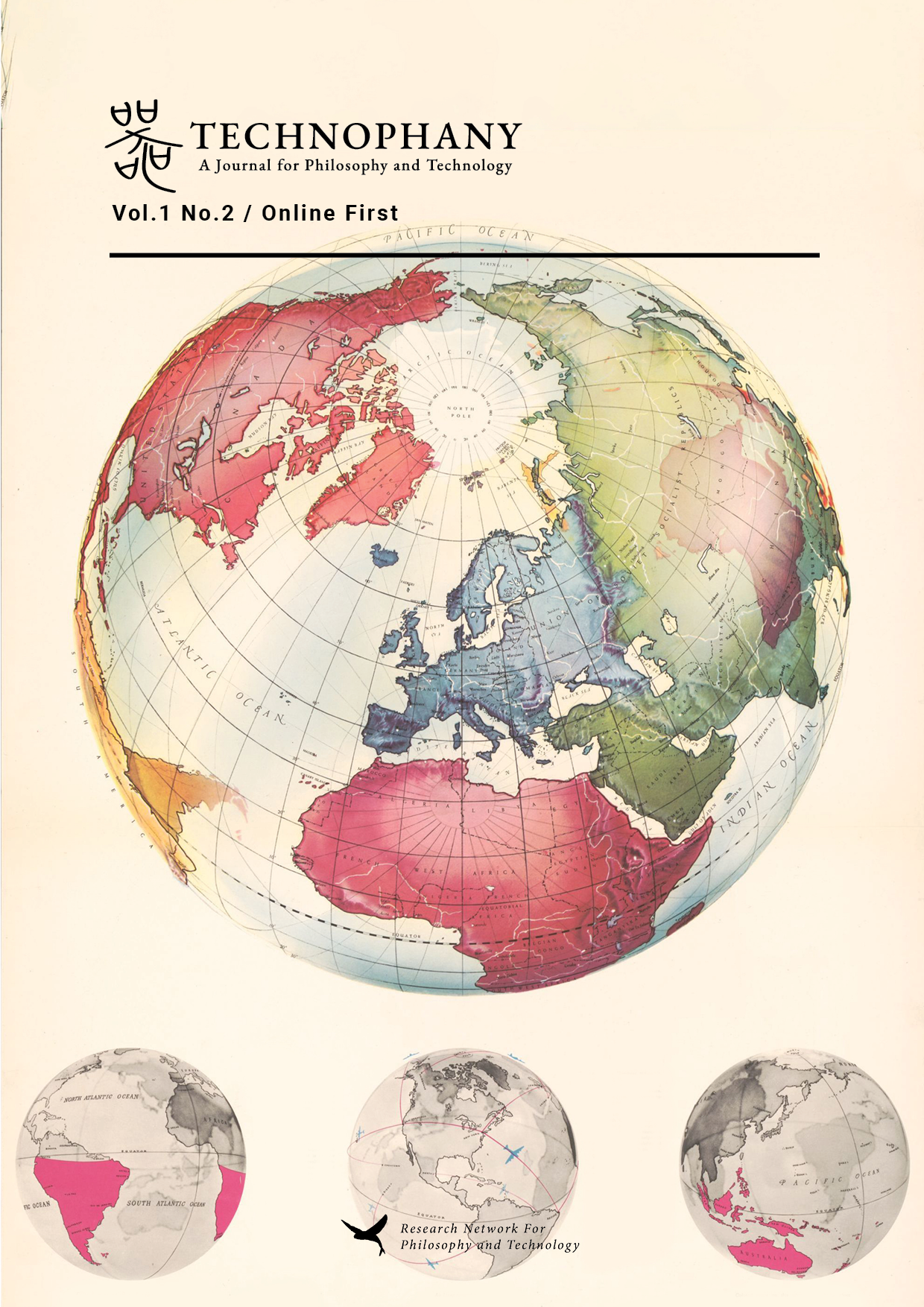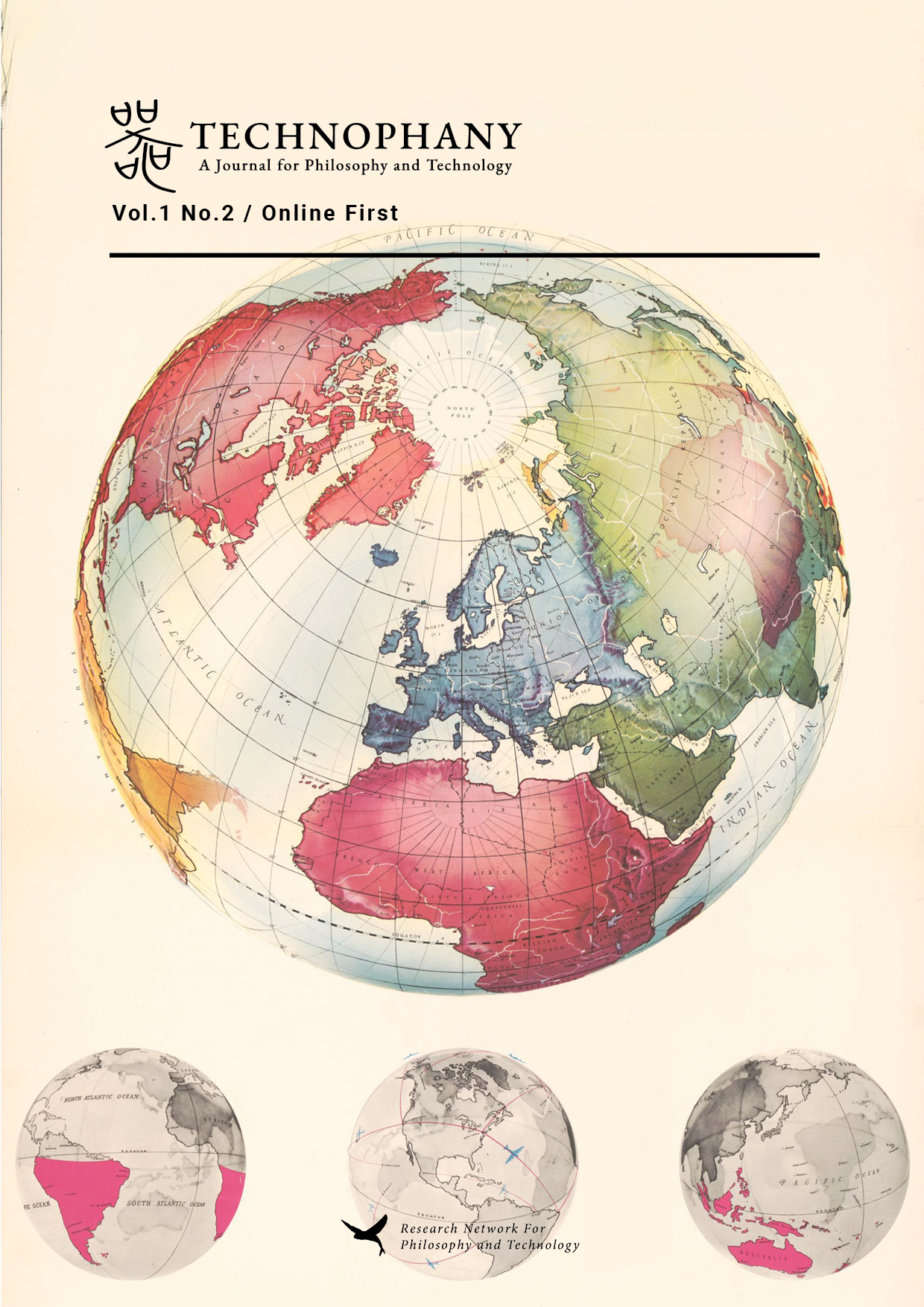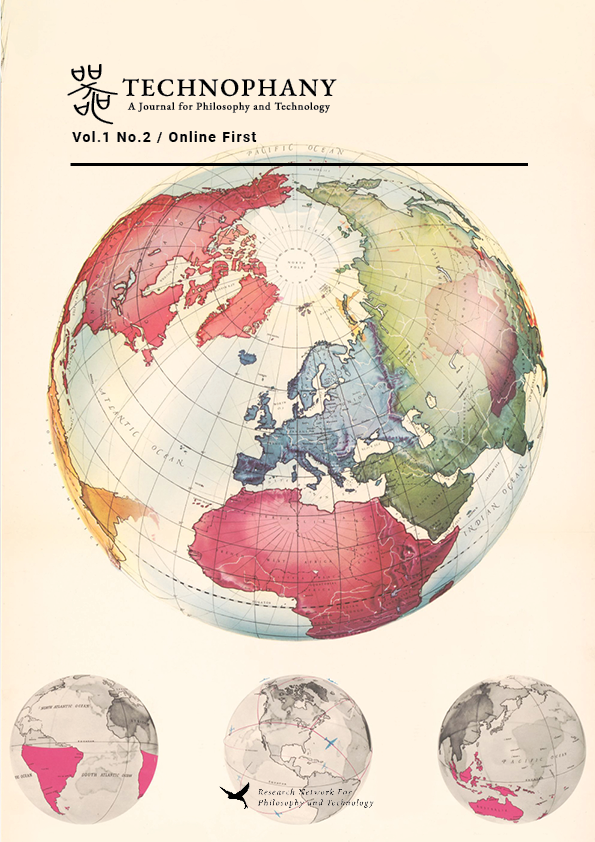Vol. 1 No. 2: General Issue (2022-2023)
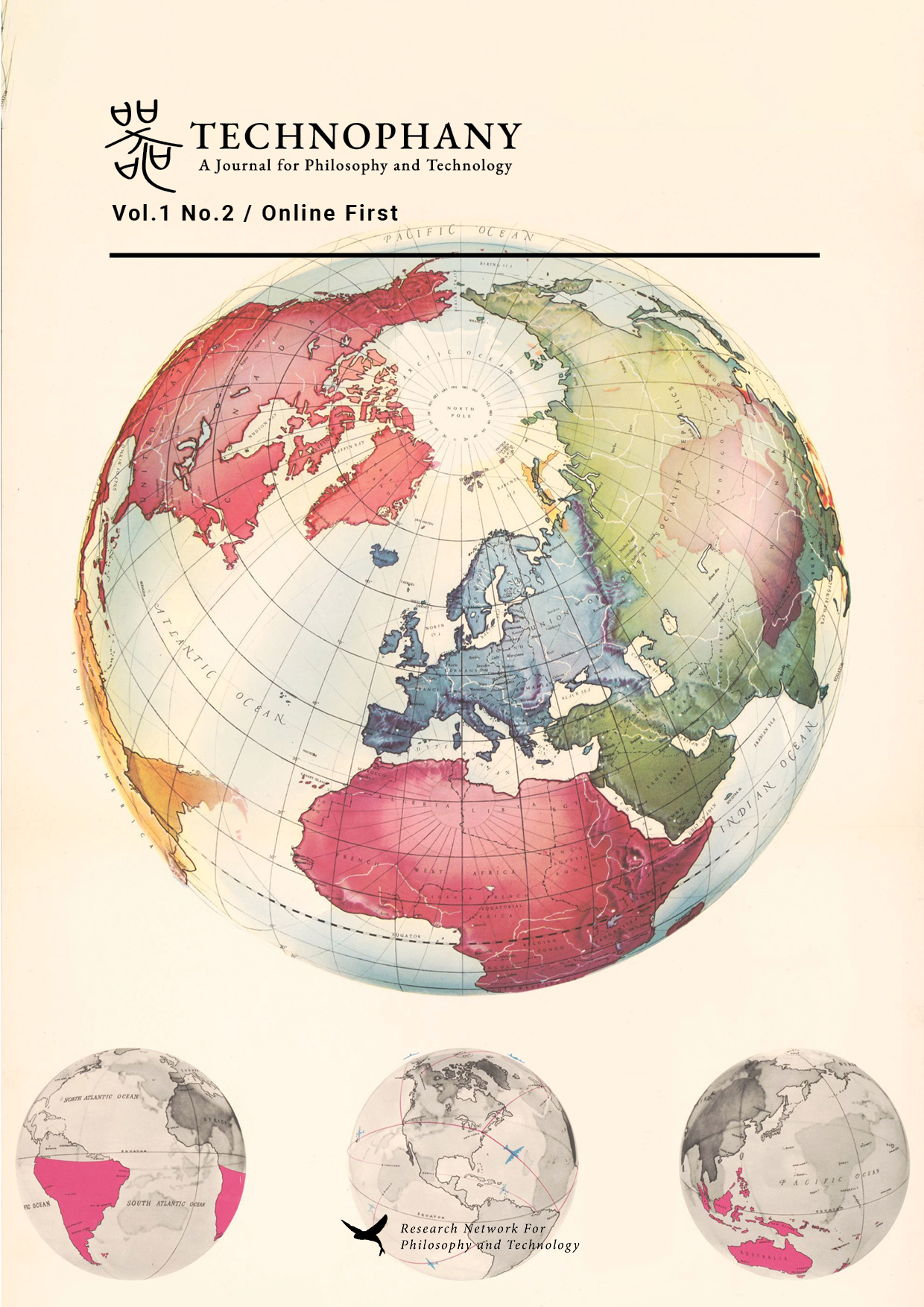
Technophany's General Issue is published on an online first basis throughout the year. Collecting articles and book reviews dedicated to the philosophical thinking of science and technology, it offers a space for critical reflection aimed at comprehending and confronting the contemporary technological world and the epistemologies that underlie it.
Full Issue
General Articles
-
Apropos Technophany
This article aims to reconstruct Simondon’s concept of technophany, which disperses throughout different writings that appeared posthumously and suggest how elaborating this concept could be understood as a significant philosophical task today. Technophany, namely the manifestation of technicity, is central to Simondon’s thought on techno-aesthetics and, more importantly, his intellectual project of reintegrating technology into culture. However, when we place Simondon’s concept of technophany in today’s context, namely the convergence of technology, art and design since the second half of the 20th century, we see that technophanies are becoming more or less ordinary marketing phenomena of the tech industry. Then, could the concept of technophany still take up this task of reconciling technology and culture? Or, instead, is it reduced to a mere economic category, and Simondon’s techno-aesthetics is only a forerunner of today’s industrial marketing strategies? In order to respond to these questions, this article returns to the source of Simondon’s concept of technicity. It shows that there is an intimacy between technophany and Mircea Eliade’s concept of hierophany, and indeed, Simondon’s genesis of technicity vividly mirrors Eliade’s analysis of sacrality and its crisis in modern times. The concept of technophany acquires a new meaning, and it refuses to be a mere phenomenon of publicity as one might easily misread it. Technophany has the task of occupying the “no man’s land” between technicity and sacrality. However, what exactly does it mean? Through the reconstruction of the concept of technophany in Simondon’s thought, this article hopes to examine the limit of the concept and, at the same time, reconceptualise and prolong it.
-
On Natural Technicity Oikos, Articulation, and the Gift
Deconstruction is from the start a matter of ecology, that is, an approach to the interminable articulation of oikos that resituates the traditional determinations of nature, technique, and place. Accordingly, “natural technicity” emerges as a metonym for deconstruction; a thinking of technics not on the basis of artefacts, but as originary articulation, the process of animating and weaving together the oikos and logos of ecology. We begin at the oikos, emphasising its elemental and decisive character for explicating the “eco” that speaks in both economy and ecology. We then turn to the technical articulation of oikos. We suggest that it is precisely through the question of articulation that we arrive at another thinking of technique, the always distinct historical modes in which an oikos takes place, which remain irreducible to an exclusive mode of nature or culture. This leads to a thinking of generalised technicity, understood as the highly differentiated series of responses and relations to what is given, in what we see as a history of articulation in response to the gift—for ecology, the originary gift of the sun’s thermodynamic plenitude.
-
Post-Apocalyptic Amazement: Aesthetics and Historical Consciousness in the Natural Contract
The intention of my essay is to introduce the concept of “natural-history” (Naturgeschichte) to foster dialogue on the role of art, aesthetics, and historiography in speculative materialism and the wider debates around the Anthropocene. I will present my argument in four steps: The first will be a brief reconstruction of the natural contract as conceived by Michel Serres in Le Contrat naturel (1990). Since in his essay Serres largely dispenses with an aesthetics, in my second step I will argue that at the same time the utopian model of the new, human-built environment, Biosphere 2 (1991) manifested exactly an aesthetics as suggested in legal-theoretical terms by Serres. In the third step, using the example of three films by Ben Rivers, one of which is specifically about Biosphere 2, I will show that the potential of utopian ideals is preserved in their realization only insofar as it is documented in images of transience that may be identified as allegorical representations. This implies a critique of the concept of utopia. In a fourth step, I will therefore show that the natural contract’s utopian body of ideas and the manifestation of the utopian concept in Biosphere 2 can be viewed from a historical-philosophical perspective, with reference to the allegorical representation of the film, as the fate of all nature in which history inscribes itself. To that end, Benjamin’s formulation of “fallen nature” [gefallene Natur] will need to be differentiated here. This selective counter-reading of Serres against Benjamin and the films of Ben Rivers ultimately aims at the restitution of a historical-philosophical argument to the status of art in the natural contract or—in a broader sense—in the Anthropocene; more precisely, it also pursues the conception of an aesthetics of amazement in post-apocalyptic narrative time.
-
Transduction of The Laws of Logomachy Metastability, Simondon, and the Heraclitean Lógos
This article is one in a series that develops the concept of logomachy. Logomachy is a philosophy of semantics or sense that takes into consideration the thermodynamic status of things in the world (their quamity). In particular, this article, looks at Gilbert Simondon’s claim that the laws of thought (Identity, Contradiction and the Excluded Middle) do not hold once certain thermodynamic states such as metastability (in between stability and instability) are taken into account. This article formulates, through a method I term transduction (the mutual development of concepts between domains), novel logical laws that fit more adequately the way things thermodynamically are in the world. To do this, the article turns to the presocratic philosopher Heraclitus to rethink the logos as a conflictual site of meaning where things, and their capacity to make-sense, is conditioned by energetic investment, where difference is the condition of sameness.
-
Confronting the Technical Aporia Heidegger’s and Stiegler’s Technics-thinking
Martin Heidegger and Bernard Stiegler have both famously argued that philosophy has hitherto been incapable of seeing, recognizing, or remembering technics. Both thinkers confronted this technical aporia by putting forward their own thought on technics, arguing to find themselves in a historically singular position from which technical thought proper can, for the first time, be questioned and invented. This article shows how both Heidegger’s and Stiegler’s conceptual projects are supported by a two-fold reading of the history of philosophy as at once devoid of technical thought proper, while at the same time harbouring, but only ever implicitly, the resources for thinking and remembering said technics. Their readings of the work of Immanuel Kant will be shown to be exemplary in this regard. This article ultimately concludes that, as a result of both Heidegger’s and Stiegler’s particular self-positioning within the history of technical thought, neither of them could recognize the technical thought proper within that history that they were at the same time so urgently looking for. Only in this way can the radical oversight regarding, for instance, Kant’s explicit writings on technics proper make sense.
-
From Simondon to Philosophical Relativity
I call Gilbert Simondon’s philosophical doctrine a “genetic encyclopaedism”, insofar as such a doctrine unifies his two doctoral theses: Individuation in Light of Notions of Form and Information and On the Mode of Existence of Technical Objects, and at the same time distinguishes itself from his courses published posthumously. The problem of the unity of these two theses was one of the many problems that I have encountered in my early work to articulate an exegesis of Simondon’s thinking. However, this exegetical work, although animated by the conviction that I could reveal all the strength and relevance of his thought, was in fact always directed towards something Post-Simondon. Even before my doctoral thesis, such effort was guided by the project of a future “all-encompassing refoundation” of his ontology within a new and global system whose first problematics will be a post-Wittgensteinian and post-Heideggerian “philosophical semantics”, and which will bear the name “Philosophical Relativity”. In this new theoretical context, ontology will become a second problematics and no longer a “first philosophy” as Simondon called it. The particularity of such a new and global system is that it does not constitute a system of Knowledge per se, since its globality is the consequence of the diffraction of meanings, a remedy to the traditional objectivation of meanings that knowledge entails, as well as to relativism itself – insofar as the latter still belongs to the objectivation of meanings by a philosophizing individual. This is what an internal criticism of genetic encyclopaedism itself will lead to.
-
Peter Sloterdijk’s Philosophy of Technology From Anthropogenesis to the Anthropocene
In the present work, we aim to expose the central tenets of the philosophy of technology which underlines the work of the German philosopher Peter Sloterdijk. Beginning from his early works and also mapping his philosophical influences, we show how he incidentally started theorising technology while still profoundly engaged with critical theory in the 1980s, but along the 1990s, passed through an anthropological turn, which made possible a concept of technology that has its foundations in both Heidegger’s existential philosophy and German philosophical anthropology in general, but also emphasising the long biological-evolutionary process of the human species itself. This perspective then enables us to highlight a powerful philosophical techno-anthropology that deals with the genesis of the human as sphero-poietic species having evolved into a biosphero-poietic geoforce and the future planetary challenges put in front of us by the Anthropocene. With this, we aim to contribute to current debates in the philosophy of technology, offering a techno-philosophical reading of an (in our view) decisive and yet under-explored author in this field.
-
Gaia Is a Tough Bitch
This essay stages a critical engagement with the late works of James Lovelock, the famous Gaia scientist hagiographized by Science Studies scholar Bruno Latour. I argue that Latour’s celebration of Lovelock’s Gaia dangerously obscures a more compelling version of Earth systems’ theory, belonging to Lovelock’s collaborator and co-founder of the theory, Lynn Margulis. Lovelock’s version of Gaia is embedded in a masculinist, bellicose and imperialist discourse reliant upon an emergency rhetoric and justifying geoengineering and A.I. control fantasies. Meanwhile, over the last decade Bruno Latour positioned himself as a thinker of ecology, partly by casting himself as a supporter of Gaia theory. Yet he made no mention of the problematic politics with which Lovelock’s work was entangled. Turning both to Lynn Margulis’ and to feminist philosopher of science Isabelle Stengers’ understanding of Gaia, the article resists anthropocentric visions to articulate less hubristic and potentially more democratic responses to our current ecological catastrophes.
Book Reviews
-
Philosophies d’après-nature
- Bitbol, Michel. Maintenant la finitude : peut-on penser l’absolu ? Paris, Bibliothèque des savoirs. Flammarion, 2019, 520 pages.
- Moynihan, Thomas T. Spinal Catastrophism : A Secret History, Falmouth, Urbanomic, 2019, 352 pages.
- Woodard, Ben. Schelling’s Naturalism : Space, Motion and the Volition of Thought, Edinburgh, Edinburgh University Press, 2019, 256 pages. -
Book Review: Returning to Judgment: Bernard Stiegler and Continental Political Theory by Ben Turner
Book review of Ben Turner’s Returning to Judgment: Bernard Stiegler and Continental Political Theory.

